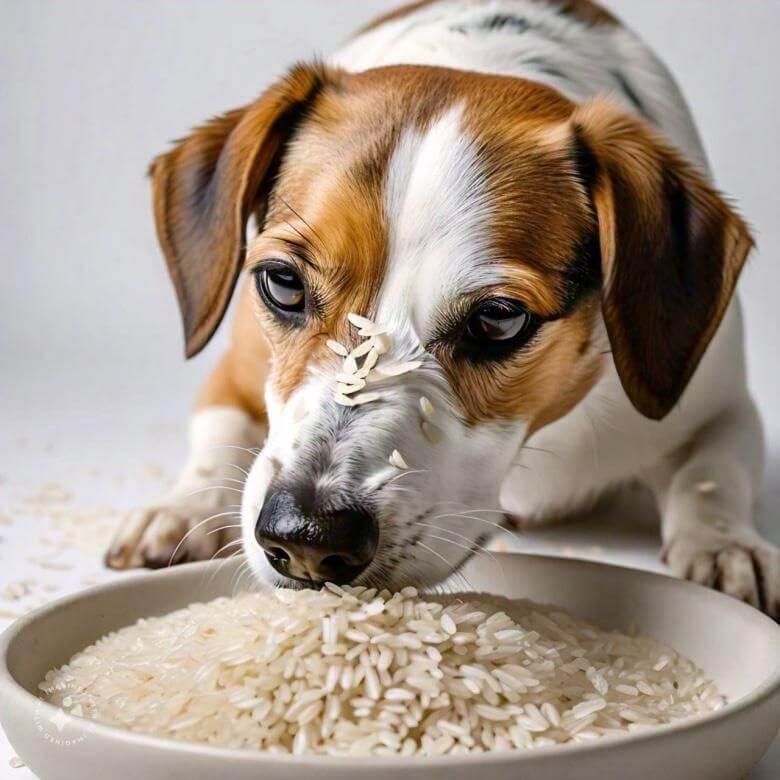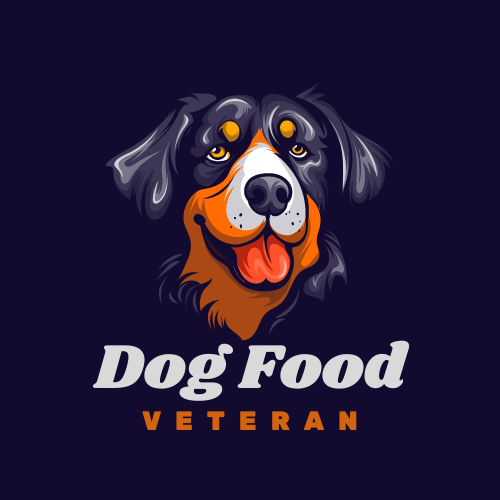
When it comes to feeding our dogs, it’s important to know what’s safe and what could harm them. While rice is a staple in many households and commonly used in dog food, the question of whether dogs can eat uncooked rice often arises, is it safe or are there risks involved? In this guide, we will look at the facts, debunk myths, and suggest healthier alternatives for your pup. Rest assured, by the end of this read, you’ll have a clear understanding of what’s best for your dog’s diet.
What is Uncooked Rice?
Uncooked rice is simply rice that hasn’t been cooked yet—those hard, dry grains you might have sitting in your pantry. It comes in different types, like white rice, brown rice, basmati, and jasmine, each with its own flavor and texture.
Since rice is a staple food for many of us, I can understand why some dog owners might wonder if it’s okay to share it with their pets, even when it’s uncooked. But before you let your dog nibble on those raw grains, it’s important you understand what that could mean for their health.
Why would someone give their dog uncooked rice?
There are a few reasons why someone might consider giving their dog uncooked rice. Some people might think it could help with digestion, as rice is often included in bland diets for dogs with upset stomachs. Others might see it as a simple way to bulk up their dog’s meal. However, just because something seems convenient doesn’t always mean it’s safe.
What exactly is in rice?
Rice is packed with carbohydrates, which are a primary source of energy and It also contains some protein, vitamins, and minerals like vitamin B and magnesium. The nutritional content can vary depending on the type of rice. For example, brown rice is richer in fiber and nutrients because it still has its outer layers intact, while white rice has been more processed and stripped of some of these benefits.
Cooked vs. uncooked rice: what’s the difference?
When you compare cooked rice to uncooked rice, the basic nutritional components—like carbs and protein—don’t change much. However, cooking rice makes these nutrients easier to digest and more accessible to your dog’s body. That’s not all, Cooked rice is also soft and easy to chew, which reduces the risk of digestive issues or choking. On the other hand, uncooked rice is hard and can be tough on your dog’s stomach, potentially leading to discomfort or even blockages in their digestive system. So, while rice can be a good addition to your dog’s diet, it’s best to serve it cooked.
Can dogs eat uncooked rice? The answer
I need you to understand that uncooked rice isn’t poisonous, but it’s not just recommended for dogs.
Why is uncooked rice hard for dogs to digest?
Their digestive systems aren’t built to handle raw grains. What this means is the rice can sit in their stomachs longer, causing discomfort and other issues.
What are the risks of feeding my dog uncooked rice?
- Stomach Upset & Bloat: It can lead to digestive issues like gas, bloating, and even bloat, a serious and potentially life-threatening condition where the stomach twists.
- Nutritional Deficiencies: Here’s the gist, feeding your dog uncooked rice doesn’t provide them with the same nutritional benefits as cooked rice and this can leave them lacking in the essential nutrients.
- Gastrointestinal Problems: The hardness of uncooked rice can result in constipation or blockages in your dog’s digestive tract, and this may require your vet’s urgent attention.
- Toxins or Contaminants: They are raw and it only means one thing: the presence of pesticides, chemicals and bacteria.You know for a fact that cooking will normally eliminate this, it goes to show why uncooked rice is not safe for your dog.
Insights from veterinarians and pet nutrition experts
Veterinarians and pet nutrition experts generally agree that while rice can be a part of a dog’s diet, it should be approached with caution and used appropriately. Here are some key insights:
- White Rice as a Digestive Aid: White rice is often recommended by veterinarians for dogs experiencing gastrointestinal issues. Let’s say your dog has this, the bland nature will help slow the stool production and ease diarrhea. According to PetMD, “White rice is not only safe for dogs, but it’s great for helping dogs with digestive problems, such as diarrhea, because it’s bland and easily digestible”.
- Moderation is Key: Experts emphasize that rice should only be given in moderation. PetMD advises that rice “should only make up 10% of your dog’s diet” and should be served only a few times a week unless otherwise directed by a veterinarian. This is because of its high glycemic levels that can spike your dog’s blood sugar level
- Avoiding Uncooked Rice: Many veterinarians warn against feeding uncooked rice to dogs, as it can lead to digestive discomfort and does not provide nutritional benefits. The Natural Dog Store notes that “uncooked rice is indigestible for dogs and can pass through their system without providing any significant nutritional value”.
Are there safer alternatives for dogs?
Of course, there are lots of cool grain options out there for your pets, let’s take a look at them:
Cooked Rice: Cooked white rice or brown rice can be an option for your pup when you practice moderation. However, It should be a supplementary meal and not part of their regular diets
Other Safe Grains
In addition to rice, you can try your hands on other healthy grains
Quinoa: This grain is high in protein, making it a nutritious option for your dog. Plus it is gluten-free and very easy to digest.
Oatmeal: I’d recommend it anytime any day, it is a good source of fiber that aids in digestion and is perfect if your dog has a sensitive stomach. However, to enjoy it to the max, serve it plain without any additives.
What can I do if my dog eats uncooked rice?
If your dog accidentally eats uncooked rice, imonitor them for any symptoms that may indicate digestive distress. Here are some symptoms to watch for:
- Vomiting
- Diarrhea
- Bloating or Abdominal Pain
When should I contact a vet?
If your dog exhibits any of the above symptoms after eating uncooked rice, then contact your veterinarian immediately. Prompt veterinary attention can help prevent more serious complications, such as bloat or obstruction.
Final words
To wrap up this guide, do not in any circumstances feed your dog uncooked rice. Instead, go for the better options I listed above and don’t forget to watch them or contact your vet if they accidentally eats uncooked rice
References and Further Reading
- Tufts Cummings School of Veterinary Medicine Nutrition Service. Accessed at: https://vetnutrition.tufts.edu/
- American College of Veterinary Nutrition. Accessed at: https://www.acvn.org/
- World Small Animal Veterinary Association Nutritional Assessment Guidelines. Accessed at: https://www.wsava.org/guidelines/global-nutrition-guidelines
- American Animal Hospital Association Nutritional Assessment Guidelines. Accessed at: https://www.aaha.org/aaha-guidelines/nutritional-assessment-2021/nutritional-assessment-home/
- Federal Drug Administration (FDA) pet food site. Accessed at: https://www.fda.gov/animal-veterinary/animal-health-literacy/get-facts-pet-food-nutrition
- Association of American Feed Control Officials (AAFCO). Accessed at: https://petfood.aafco.org/
- Pet Food Institute. Accessed at: https://www.petfoodinstitute.org/
- Pet Obesity Prevention. Accessed at: https://petobesityprevention.org/
- USDA Nutrient Database. Accessed at: https://fdc.nal.usda.gov/
- Purina Dog Nutrition Basics. Accessed at: https://www.purina.com/articles/dog/health/nutrition/dog-nutrition-basics
- Georgia Veterinary Associates Dog Nutrition. Accessed at: https://www.mygavet.com/services/dogs/dog-nutrition
- Owings Mills Veterinary Center Dog Nutrition. Accessed at: https://www.owingsmillsvet.com/services/dogs/dog-nutrition
- PetMD Dog Nutrition Guide. Accessed at: https://www.petmd.com/dog/nutrition/evr_dg_whats_in_a_balanced_dog_food
Additional Resources
- Tufts Petfoodology: Comprehensive information on dog nutrition topics. Accessed at: https://vetnutrition.tufts.edu/petfoodology/
- FDA Recalls and Withdrawals: Stay up-to-date on pet food recalls. Accessed at: https://www.fda.gov/animal-veterinary/safety-health/recalls-withdrawals
- ASPCA Pet Nutrition: Tips and advice on feeding dogs. Accessed at: https://www.aspca.org/pet-care/dog-care/dog-nutrition
- VCA Animal Hospital Dog Nutrition: In-depth articles on canine nutrition. Accessed at: https://vcahospitals.com/know-your-pet/dog-nutrition
- Cummings Veterinary Medical Center Nutrition Service: Schedule a consultation with a board-certified veterinary nutritionist. Accessed at: https://vetnutrition.tufts.edu/services/
Read Also:

